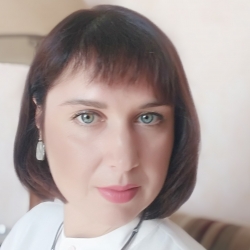КОСВЕННАЯ РЕЧЬ
SIMPLE PRESENT → SIMPLE PAST
“I work in Google.” - He said he worked in Google
“I am a construction engineer.” - He said he was a construction engineer
PRESENT continuous → PAST continuous
“I’m cleaning my flat today.” - He said he was cleaning his flat today
“Mary is singing in the show.” - Lee said that Mary was singing in the show
PRESENT PERFECT → PAST PERFECT
“I’ve already read that book.” - She said she had already read that book
“Gary has called yesterday.” - Jack said Gary had called yesterday
PRESENT PERFECT continuous→ PAST PERFECT continuous
“Jeff has been running.” - She said Jeff had been running
“Celine and Lee have been walking through the forest.” - Ling said they had been walking through the forest
SIMPLE PAST → PAST PERFECT
“I saw my ex-boyfriend.” - She said she had seen her ex-boyfriend
“I didn’t see the robbery.” - She said she hadn’t seen the robbery
МОДАЛЬНЫЕ ГЛАГОЛЫ
PRESENT MODALS → PAST MODALS
“I will mop the floor.” - She said she would mop the floor
“I can run fast.” - He said he could run fast
HAVE TO / HAS TO и MUST → HAD TO
“I have to clean the flat.” - He said he had to clean the flat
“I don’t have to clean the garage.” - He said he didn’t have to clean the garage
Таблица перевода обстоятельств. Слева слово в прямой речи, справа — его эквивалент при переводе прямой речи в косвенную.
Now — then
Today — that day
Yesterday - the day before
The day before yesterday (позавчера) — two days before
Tomorrow — the next day
The day after tomorrow (послезавтра) — in two day's time
Next week (year, month) — the following week (year, month)
Next Monday — the following Monday
Last week (year, month) — the previous week (year, month)
A year ago — the year before/the previous year
This June — the following June
Ago — before
Here — there
This, these — that, those
Вчера ты встретил своего приятеля Чарли. Чарли рассказал тебе много интересного. Вот что он тебе сказал (в прямой речи):
1. I'm thinking of going to Canada.
2. My farther is in hospital.
3. Nora and Jim are getting married next month.
4. I haven't seen Bill for a while.
5. I've been playing tennis a lot recently.
6. Margaret has had a baby.
7. I don't know what Fred is doing.
8. I hardly ever go out these days.
9. I work 14 hours a day.
10. I'll tell Jim I saw you.
11. You can come and stay with me if you are ever in London
12. Tom had an accident last week but he wasn't injured.
13. I saw Jack at a party a few months ago and he seemed fine.
На следующий день ты встречаешь другого приятеля и передаешь ему то, что Чарли рассказал тебе. Используй косвенную речь:
Charlie said that he was thinking of going to Canada.

















